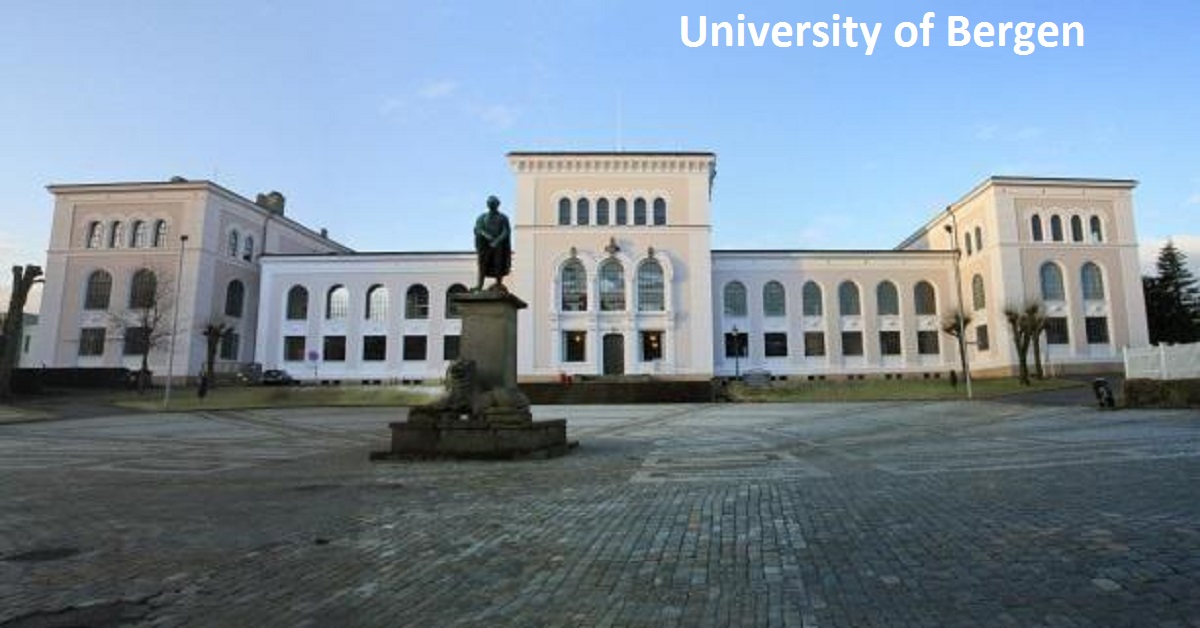
UiB – Knowledge that shapes society
Through robust and close interaction with the world around us – globally, nationally and locally – we shall be instrumental in building a society based on knowledge, skills and attitudes.
Do you want to take part in shaping the future?
https://youtube.com/watch?v=oyaThmIq6Kg%3Fautoplay%3D0%26modestbranding%3D1%26playsinline%3D0%26rel%3D0%26start%3D0%26enablejsapi%3D1%26origin%3Dhttps%253A%252F%252Fwww.jobbnorge.no%26widgetid%3D1
Associate professor
There is a vacancy for an associate professor in chemical valorization of biomass at the Department of Chemistry.
About the department
Chemical knowledge, technology and competence are essential factors in meeting society’s growing demands in sectors such as health, environment, and sustainable energy and materials, to name but a few areas that lie at the core of UN’s sustainable development goals (SDGs). For example, achieving a major shift toward sustainable energy supply (SDG 7) and sustainable production (SDG 12) will require chemical solutions to unlock the potential of biorefining in a future bio-based and circular economy. The Department of Chemistry (http://www.uib.no/en/kj) contributes to creating, applying, and disseminating chemical knowledge through research and education of high quality and in collaboration with relevant regional, national, and international stake holders. The department offers modern and up-to-date education at bachelor’s, master’s and PhD levels and hosts or co-hosts several study programs including chemistry, medical technology, pharmacy, and nanotechnology and -science. The department currently counts about 80 employees including 25 associate professors and professors, and about 40 PhD candidates. The Department of Chemistry has invested strategically in building a modern research infrastructure and hosts the national NMR platform in Norway.
Work tasks/research field:
Work tasks/ research field
Department of Chemistry aims to be a positive force in shifting the economy from being based on fossil resources to renewable resources and has ongoing research on the use of non-food renewable resources ranging from carbon dioxide to bioresources such as algae, lignocellulosic material, and waste, to produce high-value compounds, a-olefins, phenols, furans and other platform chemicals, polymers, bioenergy, and biofuels. To foster collaboration and synergy effects, the researchers within valorization of renewables have recently formed a research group, Sustainable Energy Carriers, Chemicals, and Materials, and intend to continue building both capability and capacity to establish and conduct larger research projects. Externally funded, joint projects have already been established to integrate activities within non-catalytic and catalytic biomass transformations and to benefit increasingly from rational, mechanistically founded catalyst and process design and statistically based experimental design approaches.
With the new position, the department seeks to support and reinforce this development. In addition to fostering collaboration and use of fundamental, mechanistic information and advanced organic analysis for chemical speciation of complex product mixtures, the new associate professor is expected to promote the principles of green chemistry, such as catalysis and benign solvent use, across the activities within biomass valorization. The successful candidate is expected to contribute to acquiring external funding of research within biomass valorization at the department.
The position includes responsibility for teaching and developing courses at both undergraduate and graduate levels, which means that over time teaching tasks may span from introductory chemistry courses to more specialized courses within the research field of the associate professor. Moreover, supervision of BSc-, MSc-, and PhD-candidates is an important part of both the research and educational components of the position. The department is increasingly adopting a collegial approach to teaching and welcomes applicants with a teaching philosophy that fits with this.
Researchers at the Department of Chemistry have access to state-of-the-art laboratories and equipment as well as local and national software and hardware for computational chemistry. The experimental infrastructure covers equipment and software for synthesis, chromatographic and spectroscopic analysis and characterization and structure elucidation, and process development. A large-scale (5 L) high-T,P reactor is also available. Moreover, the department hosts the Norwegian NMR platform (NNP, https://nmr.h.uib.no/) and has 500, 600, and 850 MHz instruments. A high-throughput experimentation (HTE) facility is being established during 2022.
Qualifications and personal qualities:
- Applicants must have a doctoral degree in chemistry or similarly relevant disciplines.
- Applicants must have documented competences in research and education within areas relevant to chemical valorization of biomass.
- The successful candidate must document research of high international standard
- Experience from elucidation of reaction mechanisms to develop and improve chemical processes is an advantage.
- Experience in qualitative and quantitative organic analysis of bio-based products is an advantage.
- Applicants must enjoy working in research and education teams, both as leader and as participant, and thus have strong collaborative and organizational skills
- The successful candidate should document the ability to attract external research funding
- A strong international network is considered advantageous
- Applicants must have excellent skills in oral and written English.
Personal and relational qualities will be emphasized. Research ambitions and potential will also count when evaluating the candidates.
Educational competence requirements
Basic teaching training and experience with the supervision of students at university level is a requirement for the position as associate professor. This implies the ability to document
- completed formal pedagogical training (relevant courses in combination with actual teaching experience can in some cases compensate for a completed course in teaching and learning in higher education).
- basic skills in planning, implementation, evaluation and development of teaching and supervision.
Educational competence must be documented in an educational portfolio which should include a documented overview of practical experience and competence as well as a brief reflection statement. The statement should primarily describe the applicant’s own teaching philosophy and an evaluation of own teaching in relation to his/her knowledge of students’ learning at a higher education level. You will find more detailed information about criteria and documentation requirements for assessing educational competence here
Applicants who are unable to document adequate educational competence upon appointment, will be ordered to meet the requirements within two years of assuming office.
The teaching language will normally be Norwegian. The successful applicant must be able to teach in Norwegian or another Scandinavian language within two years of assuming office.
University of Bergen emphasizes educational qualifications for appointment to scientific positions.
We can offer:
- a good and professionally stimulating working environment.
- salary at pay grade 68–74 (code 1011/Pay range 24, alternative 10) in the state salary scale. This currently amounts to a gross annual salary of NOK 626 100 –
- 702 100. Further increase in salary will depend on seniority. A higher salary may be considered for a particularly well qualified applicant.
- Enrolment in the Norwegian Public Service Pension Fund
- Good welfare benefits
Associate professors have the opportunity to apply for personal promotion to a full professorship. For further information: Personal promotion to Professor | Faculty of Mathematics and Natural Sciences | UiB
Your application must include:
- CV
- Diplomas and references
- Complete list of publications
- a brief outline of the applicant’s interest and motivation to apply for this position, as well as a summary of the most important research results (2-3 pages)
- educational competence documented in an educational portfolio (see above)
- a list of academic work that the applicant believes should be taken into consideration in the assessment, including information about where this work was published
- the names of three referees, where at least one is familiar with your tutorial skills
The application and appendices with certified translations into English or a Scandinavian language must be uploaded at Jobbnorge. Applications sent to individuals per email, will not be considered.
General information:
For further details about the position, please contact professors Vidar R. Jensen (Vidar.Jensen@uib.no), Tanja Barth (Tanja.Barth@uib.no), or Knut Børve (Knut.Borve@uib.no), all at Department of Chemistry, University of Bergen.
The state labor force shall reflect the diversity of Norwegian society to the greatest extent possible. Age and gender balance among employees is therefore a goal. People with immigrant backgrounds and people with disabilities are encouraged to apply for the position.
We encourage women to apply. If multiple applicants have approximately equivalent qualifications, the rules pertaining to moderate gender quotas shall apply.
The University of Bergen applies the principle of public access to information when recruiting staff for academic positions.
Information about applicants may be made public even if the applicant has asked not to be named on the list of persons who have applied. The applicant must be notified if the request to be omitted is not met.
For further information about the recruitment process, click here.
About The University of Bergen
The University of Bergen is a renowned educational and research institution, organised into seven faculties and approximately 54 institutes and academic centres. Campus is located in the centre of Bergen with university areas at Nygårdshøyden, Haukeland, Marineholmen, Møllendalsveien and Årstad.
There are seven departments and several centres at Faculty of Mathematics and Natural Sciences. Read more about the faculty and departments.





